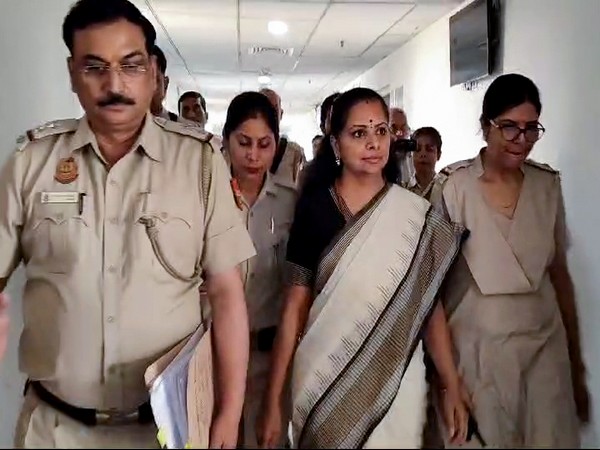Supreme Court Seeks CBI, ED Responses on K Kavitha's Plea Against Bail Rejection
The Supreme Court has issued notices to the CBI and ED regarding BRS leader K Kavitha’s plea against a Delhi High Court order rejecting her bail in the alleged excise policy scam. Senior advocate Mukul Rohatgi argued that Kavitha has been jailed for five months amid ongoing prosecutions.

- Country:
- India
The Supreme Court on Monday issued notices to the Central Bureau of Investigation (CBI) and the Directorate of Enforcement (ED) concerning Bharat Rashtra Samithi (BRS) leader K Kavitha's plea. Kavitha is challenging a Delhi High Court order that denied her bail in the alleged Delhi excise policy scam. A bench comprising justices BR Gavai and KV Viswanathan sought responses from the CBI and ED on this issue.
Senior advocate Mukul Rohatgi, representing Kavitha, informed the apex court that she has been incarcerated for five months. Recently, the ED filed a supplementary prosecution complaint (charge sheet) in Delhi's Rouse Avenue Court regarding the money laundering case tied to the alleged excise policy scam. The chargesheet includes names of BRS Leader K Kavitha and co-accused Chanpreet Singh, Damodar, Prince Singh, and Arvind Kumar.
On May 6, the Rouse Avenue Court declined the bail petitions filed by K Kavitha in connection with the CBI and ED cases. The ED had arrested Kavitha on March 15, 2024, followed by the CBI on April 11, 2024. According to officials, the CBI inquiry was recommended based on findings from a July report by the Delhi Chief Secretary, detailing apparent violations of various legislations including the GNCTD Act 1991 and the Delhi Excise Act-2009.
The ED and CBI allege that significant irregularities were committed during modifications to the excise policy. This included extending undue favours to licence holders, waiving or reducing licence fees, and extending L-1 licences without requisite approvals. (ANI)
(With inputs from agencies.)
ALSO READ
Delhi High Court Rejects AAP Councillors' Pleas to Reschedule MCD Ward Committee Elections
Delhi High Court Denies Bail to PFI Leader OMA Salam
Delhi High Court Criticizes Excess Seat Allocation in St. Stephen’s College
Delhi High Court Denies Interim Bail to PFI Leader OMA Salam
Delhi High Court Issues Notice to Baba Ramdev Over Alleged Non-Vegetarian Content in Patanjali Tooth Powder










